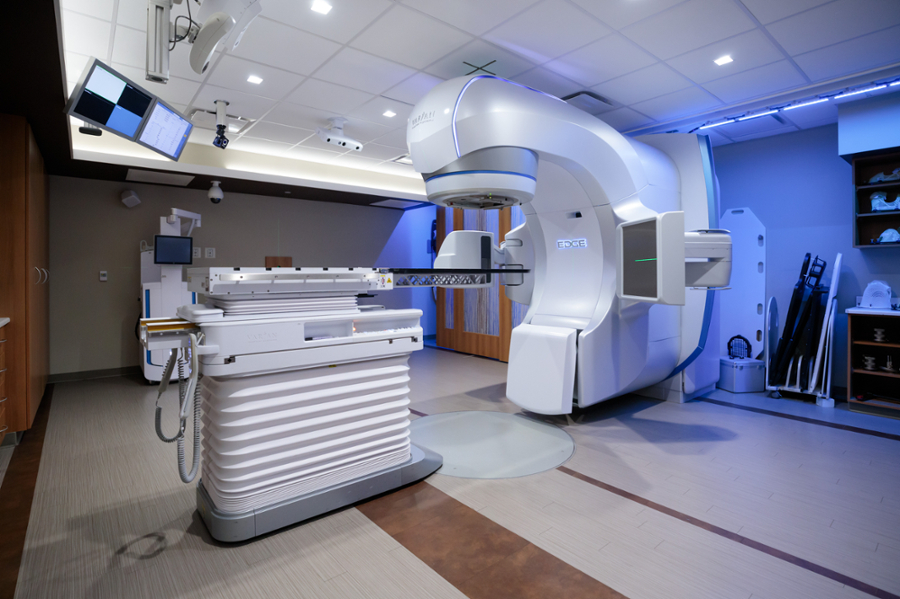What is Radiation Therapy?

What is Radiation Therapy?
The field of radiation therapy/oncology represents one part of the multi-disciplinary approach to the treatment of patients with cancer. The type of cancer and its location will determine the type of radiation used for treatment.
How does it work?
Cancers are a collection of abnormal cells that are, in most cases, sensitive to radiation. Some types of cancers react differently to radiation, and treatment programs are specifically designed to account for this variance.
Radiation affects both normal and cancerous cells. But it is often possible to treat only the cancer cells through the use of appropriate treatment schedules, allowing the normal cells to recover. With computerized treatment planning programs, it is now feasible to direct the radiation so that minimal damage to normal tissue will occur. This is achieved by directing the radiation from various angles into the tumor area.
Curative or palliative?
Radiation treatment can be either curative or palliative. Curative treatment is designed to eradicate cancer cells or prevent them from growing and multiplying. Palliative treatment is used to help relieve the pain that comes from certain disease states. Palliative radiation therapy usually requires fewer treatments than curative therapy.
Treatment
The radiation is primarily given using a linear accelerator, which directs the radiation from outside your body to the inside. This is similar to having an x-ray taken, except each treatment session will last about 15-20 minutes. Patients will be monitored continuously through closed-circuit television and intercom system and only have to hold still and breathe normally. Emergency procedures are in place in the event that you need an immediate response.
Treatments are usually given daily, Monday through Friday. Weekends and holidays are not utilized for treatment plans unless otherwise ordered by the radiation oncologist. You will see the radiation oncologist on a weekly basis for an examination and review your progress. Additional reviews by the radiation oncologist will take place if the need arises.
Side effects
Certain side effects may occur and are generally related to the tissues in the treatment area. Specific side effects will be discussed with you during the initial treatment planning stages. Periodic blood tests will also be performed to monitor your blood counts. Ancillary personnel who work with the radiation oncologist include nurses, technologists, social workers and dietitians.
General instructions
Some important general instructions include maintaining an adequate diet and getting sufficient rest. Physical activity is encouraged and any special instructions will be provided to you by the radiation oncologist. Special diet plans may be recommended and personal diet plans can be developed with the aid of the dietitian. To help the body eliminate the destroyed cancer cells, it's recommended that you drink at least two quarts of liquid daily.
Certain other personal care instructions will be given to you to insure that the least complications are associated with your course of treatment. Included in this is the care needed for your skin.
It is important to keep the staff notified of any problems you may have or questions you would like answered.